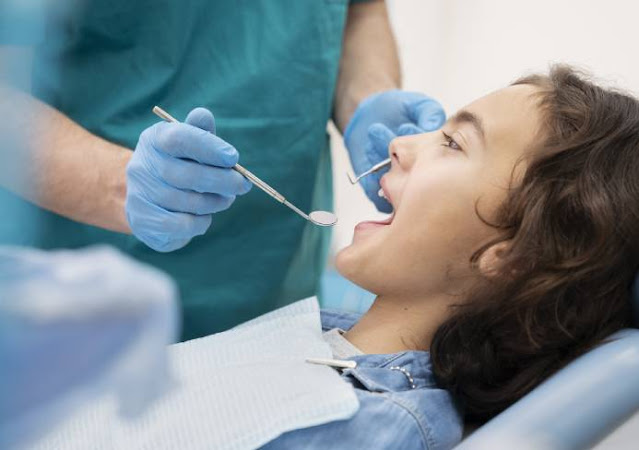Self-Ligating Braces: How They Work And Their Advantages
If you're on the hunt for the perfect smile, you've probably come across various orthodontic treatments. One that's gaining a lot of attention lately is self-ligating braces, and for good reason! Unlike traditional braces that rely on pesky elastic bands and wires, self-ligating braces use a sliding mechanism to move your teeth into their proper positions. And if you're looking for a reliable dental professional to help you achieve that perfect smile, look no further than VITAL! Their team of experts, including a top-notch dentist in Dwarka and an experienced practitioner of dental implants in Dwarka, sector 6, will guide you every step of the way towards your dream smile.
Self-ligating
braces are made up of brackets that are attached to the teeth and a wire that
connects the brackets. The brackets have a sliding mechanism that allows the
wire to move freely through them. This means that the wire can apply a
constant, gentle force to the teeth, which gradually moves them into the
desired position.
Advantages Of Self-Ligating Braces
The
main advantage of self-ligating braces is that they do not require elastic
bands or wires to hold the wire in place. Instead, the brackets have a built-in
clip that holds the wire in place. This means that there is less friction
between the wire and the bracket, which can result in less discomfort for the
patient. Additionally, self-ligating braces require fewer adjustments than
traditional braces, which means fewer trips to the orthodontist.
Self-ligating braces offer several more
advantages over traditional braces, including:
● Faster Treatment Time: Self-ligating braces are designed to
apply a constant, gentle force to the teeth, which can move them into the
correct position more quickly than traditional braces. As a result, treatment
time can be reduced by up to 6 months.
● Fewer Adjustments: Self-ligating braces require fewer
adjustments than traditional braces because they do not use elastic bands or
wires. This means patients can visit their orthodontist less frequently, which
can be especially beneficial for those who live far away.
● Less Discomfort: Self-ligating braces use a sliding
mechanism to adjust the position of the teeth, which means there is less
friction between the wire and the bracket. This can result in less discomfort
for the patient.
● Easier to Clean: Self-ligating braces are easier to keep clean than
traditional braces because they have fewer parts. This means there are fewer
places for food particles and bacteria to get trapped.
● More Attractive: Self-ligating braces are less noticeable than
traditional braces because they have smaller brackets and do not require
elastic bands or wires. This can be especially appealing for adults who are
hesitant to get braces because of their appearance.
● Better Oral Health: Since self-ligating braces have fewer
parts and are easier to keep clean, they can promote better oral health during
treatment. This can lower the chances of tooth decay, gum disease, and other
oral health issues.
● More Comfortable: The sliding mechanism used by self-ligating braces
means that they are generally more comfortable to wear than traditional braces.
Patients report less discomfort and fewer sore spots in their mouths.

.jpeg)
Comments
Post a Comment